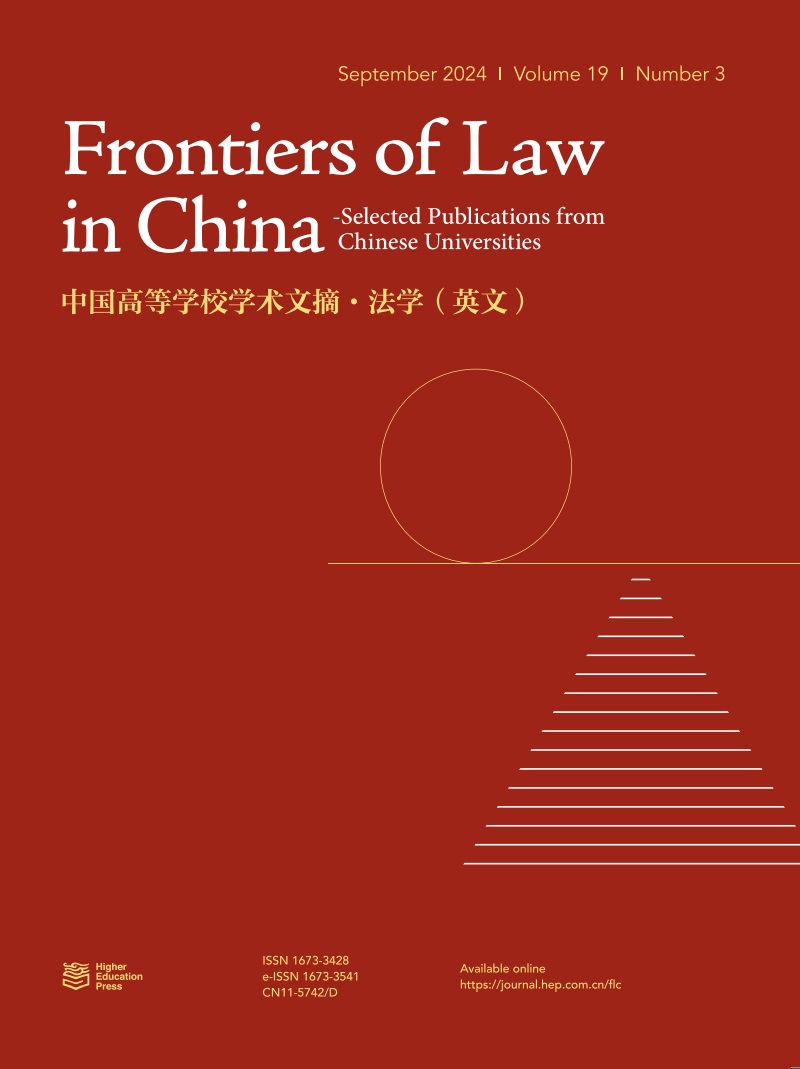新时期中日韩三国判决的承认与执行:韩国法律视角
IF 0.1
4区 社会学
Q4 LAW
引用次数: 1
摘要
本文论述了大韩民国(以下简称“韩国”或“韩国”)承认和执行外国判决的规则。《民事诉讼法》第217条和第217-2条以及《民事执行法》第26条和第27条分别规定了外国判决的承认和执行。韩国没有签订任何关于承认和执行外国判决的双边或多边条约,也不是《选择法院协定公约》的缔约国。文章还分析了中、日、韩地区(以下简称“地区”)承认和执行判决的现状,并提出了改善这一现状的措施。发件人认为,该区域的专家应着手进行一个改善目前情况的项目,第一步应是交流和收集关于该区域各国在承认和执行判决方面的现行法律制度的资料。发件人期待着该区域专家今后就这一问题进行合作,并相信互惠要求将在不久的将来得到克服,这一要求目前是该区域相互承认和执行外国判决的主要障碍。本文章由计算机程序翻译,如有差异,请以英文原文为准。
RECOGNITION AND ENFORCEMENT OF JUDGMENTS BETWEEN CHINA, JAPAN AND SOUTH KOREA IN THE NEW ERA: SOUTH KOREAN LAW PERSPECTIVE
This article discusses the rules for recognition and enforcement of foreign judgments in the Republic of Korea (hereinafter referred to as “South Korea” or “Korea”). Articles 217 and 217-2 of the Civil Procedure Act of Korea and Articles 26 and 27 of the Civil Enforcement Act of Korea provide for the recognition and enforcement of foreign judgments respectively. Korea has not entered into any bilateral or multilateral treaties regarding the recognition and enforcement of foreign judgments and is not a party to the Convention on Choice of Court Agreements. The article also considers the current undesirable status of recognition and enforcement of judgments in the region consisting of China, Japan and South Korea (hereinafter referred to as “Region”) and suggests a course of action to be taken to improve the situation. The author believes that the experts of the Region should embark upon a project to improve the current situation and that the first step should be to exchange and gather information on the current legal regime of the countries in the Region on the recognition and enforcement of judgments. The author looks forward to future cooperation among the experts in the Region on this topic and is confident that the reciprocity requirement, which currently is a major obstacle to the mutual recognition and enforcement of foreign judgments in the Region, will be overcome in the near future.
求助全文
通过发布文献求助,成功后即可免费获取论文全文。
去求助
来源期刊

中国法学前沿
LAW-
CiteScore
0.20
自引率
0.00%
发文量
398
期刊介绍:
Frontiers of Law in China seeks to provide a forum for a broad blend of peer-reviewed academic papers of law studies, in order to promote communication and cooperation between jurists in China and abroad. It will reflect the substantial advances that are currently being made in Chinese universities in the field of law. Its coverage includes all main branches of law, such as jurisprudence, constitutional jurisprudence, science of civil and commercial law, science of economic law, science of environmental law, science of intellectual property, science of criminal justice, science of procedural law, science of administrative law, science of international law, science of legal history, science of history of legal thoughts, etc.
 求助内容:
求助内容: 应助结果提醒方式:
应助结果提醒方式:


